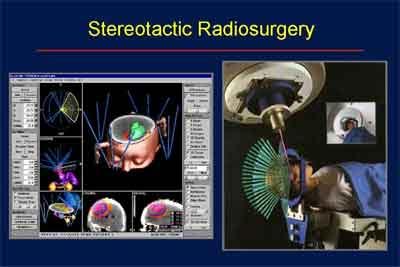- Home
- Editorial
- News
- Practice Guidelines
- Anesthesiology Guidelines
- Cancer Guidelines
- Cardiac Sciences Guidelines
- Critical Care Guidelines
- Dentistry Guidelines
- Dermatology Guidelines
- Diabetes and Endo Guidelines
- Diagnostics Guidelines
- ENT Guidelines
- Featured Practice Guidelines
- Gastroenterology Guidelines
- Geriatrics Guidelines
- Medicine Guidelines
- Nephrology Guidelines
- Neurosciences Guidelines
- Obs and Gynae Guidelines
- Ophthalmology Guidelines
- Orthopaedics Guidelines
- Paediatrics Guidelines
- Psychiatry Guidelines
- Pulmonology Guidelines
- Radiology Guidelines
- Surgery Guidelines
- Urology Guidelines
Stereotactic radiotherapy highly effective for kidney cancer: Study

Kidney cancer patients may soon have more treatment choices that provide a higher quality of life, thanks to research completed by physician scientists at UT Southwestern Medical Center. Their recent study showed that treating metastatic kidney cancer with an advanced and focused form of radiation called stereotactic ablative radiation therapy achieves more than 90 percent control of local tumors, and offers the possibility of safely delaying systemic therapy.
"This study shows that stereotactic radiation provides a good noninvasive alternative to conventional treatment such as surgery, and that it effectively controls the disease," said Dr. Raquibul Hannan, Assistant Professor of Radiation Oncology and co-Leader of the Kidney Cancer Program of the Harold C. Simmons Comprehensive Cancer Center and senior author of the study. "It may also offer an alternative to patients who are not candidates for surgery. Often due to the number and location of the metastases and sometimes due to other conditions, patients are not candidates for surgery."
The standard of care for metastatic renal cell carcinoma is systemic therapy, which can be associated with significant side effects like tiredness, fatigue, high blood pressure, and rash. These side effects can be significant and debilitating. According to Dr. Hannan, the new study shows that patients with metastatic kidney cancer can be treated with stereotactic radiation therapy with the goal of being cured, or to delay systemic therapy allowing patients to enjoy a better quality of life without the side effects of the drugs.
"This study, which represents, possibly, the largest experience reported in the literature, may also help medical oncologists, since stereotactic radiation could also be used for patients who have limited sites of disease progression while receiving systemic therapy," said Dr. Brugarolas, leader of the Kidney Cancer Program. It can also assist surgeons, since when kidney cancer has spread, the tumors are often not amenable to surgical removal.
The study is published in the International Journal of Radiation Oncology, Biology, Physics.
The research was conducted in the Kidney Cancer Program, one of two programs in the country to be recognized with an $11 million SPORE (Specialized Program of Research Excellence) from the National Cancer Institute. As part of the SPORE, researchers are improving the ways in which radiation is given, by evaluating combinations with drugs and identifying those tumors that are most likely to respond. In particular, investigators are evaluating combinations with immunotherapy, iSABR immunotherapy and Stereotatic Ablative Radiation Therapy.
Nearly 400,000 Americans are now living with a diagnosis of kidney cancer and more than 60,000 people are expected to be diagnosed with kidney cancer this year, according to the National Cancer Institute.
Five-year survival rate averages run from 81 percent for stage 1, when cancer is contained in the kidney, to about 53 percent for stage 3, when it has spread beyond the kidney, and just 8 percent for stage 4, when the cancer spreads to more distant parts of the body or other organs. However, 5-year survival rates at the UT Southwestern's Kidney Cancer Program are double national benchmarks.

Disclaimer: This site is primarily intended for healthcare professionals. Any content/information on this website does not replace the advice of medical and/or health professionals and should not be construed as medical/diagnostic advice/endorsement or prescription. Use of this site is subject to our terms of use, privacy policy, advertisement policy. © 2020 Minerva Medical Treatment Pvt Ltd